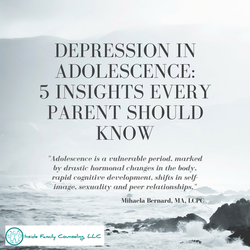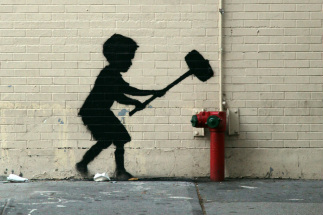
This is a time for questioning one's beliefs, distancing oneself from parents, and challenging societal norms. It is a time for finding one's own place in the world in search of a unique identify, life goals and aspirations. It is a critical time but also a difficult period of transition from childhood to young adulthood, from a place of dependence to one of independence. Adolescents find themselves challenging authority, while at the same time anxiously needing it.




 RSS Feed
RSS Feed